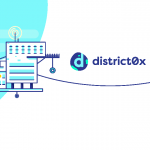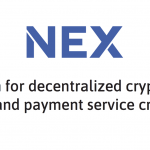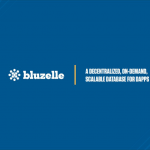Lunyr is a decentralized crowd sourced encyclopedia which rewards users with app tokens for peer-reviewing and contributing information. It aims to be the starting point of the internet for finding reliable, accurate information. Put simply, Lunyr builds upon the philosophy of Wikipedia and invents a next generation knowledge base on the Ethereum blockchain.
HOW IT WORKS.
Users start by submitting content (new information, or edits to existing content), which is then reviewed by other contributors for quality. Each contributor’s submission costs gas, so flooding the system with junk has its economic limits, just as in Ethereum. All submissions go through a mandatory peer review process and are not committed to the knowledge base unless approved. Every submission requires sources for reviewers to validate the submission’s reliability and accuracy. Hence, spam, fake, or malicious content will be filtered out.
If the content passes review, then the contributor must review other submissions. This results in an award of contribution points (CBN) and honor points (HNR). Neither CBN nor HNR can be transferred to other individuals, which ensures that only users who have committed to the well-being of the ecosystem hold CBN and HNR.
The reason contributors are only allowed to peer review other submissions after their content passes review is that Lunyr wants to have a natural obstacle to Sybil attacks, in which an entity creates multiple accounts and peer reviews itself to bypass the peer review system. This approach makes the cost of such an attack increase linearly with the scale of the attack, since it costs time, attention and gas to make submissions.
Additionally, Lunyr will insert an element of randomness to the peer selection so that it will be difficult for an attacker to control which content they will be selected to review. Lunyr will also give a slight economic incentive for users to post all their contributions from one account by making the reward scale slightly non-linearly.
What are CBN?
CBN are rewards for successful content submission and peer review. They earn you a portion of the LUN in the LUN pool at the end of the two week reward period. CBN are automatically consumed after LUN rewards are distributed for the two-week reward period.
What are HNR?
HNR are rewards given at the same time as CBN for successful content submission and peer review. HNR may be spent on proposing and voting on disputes. Holders of HNR also hold CBN, which ensures that the people voting on the proposals have an economic incentive to vote in the best interest of the platform. HNR are not transferable. They are consumed upon use.
FEATURES.
Decentralized.
Centralized systems represent single points of failure controlled by central authorities. Individuals relying on these systems must trust that authorities will not abuse their power to forward self-serving agendas. Yet, resisting the temptation to abuse power is difficult in practice for even the most respected authorities. In 2012, Wikipedia deliberately shut down for 24 hours to protest against internet piracy laws, preventing individuals worldwide from accessing any information.
The Lunyr platform is built on top of Ethereum and is therefore decentralized, censorship-resistant, and autonomous. No single point of failure exists. No central authority or middle man owns or can corrupt the information. The rules in which people interact with the knowledge base and with one another are mutually agreed upon and enforced through smart contracts, which are publicly verifiable on the blockchain.
Token Incentive System.
Ethereum enables the creation of app tokens, which can be used in an incentive system to replace intermediaries. In Lunyr’s system, tokens play a key role in providing economic incentives so that the rational behavior of individuals results in common good. Unlike in Wikipedia where volunteers must donate their time to contribute and validate information, in Lunyr’s platform, contributors are rewarded for their work and are incentivized to continue increasing the value of the ecosystem.
Mandatory Peer Review.
Drive-by vandalism and corruption are eliminated in the Lunyr platform. All content submissions go through a mandatory peer review process and are not committed to the knowledge base until validated for reliability and accuracy. A powerful incentive system enabled by app tokens ensures that peer reviewers act in the best interest of the ecosystem.
Storing content.
Since storing data on the blockchain is expensive, it is instead stored on IPFS, the interplanetary file system. Lunyr’s developers intend to migrate the data to Swarm when it’s ready. Since all of the content is on IPFS, anybody can host the content, and its integrity is ensured by cryptography.
This ensures decentralization as much as possible so that Lunyr as an organization does not become a focal point for censorship. At the same time, it will ensure there is a high degree of reliability and convenience, so that the Lunyr knowledge base is always just a click away.
The ad system.
Advertisers advertise on the Lunyr platform by participating in an auction where they bid on ad-space using Lunyr tokens (LUN). The ad-space is allocated based on the relevance of the ad and the size of the bid, similar to how Google AdWords works.
Ads submitted by advertisers are first reviewed by contributors to filter out inappropriate material. Then machine learning is used to give the content a vector that encodes its semantic relationships. This vector is measured against the vectors of the platform’s pages to determine the ad’s relevance to those pages. This relevance score is then combined with a bid amount to determine a rank for the ad.
Dispute resolution.
Let’s face it, humans argue a lot. In the event that there is an important organizational change that someone wants to make to the content, such as annotating the content for bias or combining pages, a contributor can spend HNR to submit a proposal and then other contributors can spend HNR vote on the proposal. In this way, the Lunyr platform can be self-governing, making cancerous information-monopolies harder to create.
An Encyclopedia for machines.
Lunyr’s ambitions do not stop at providing an alternative to Wikipedia as it is today. They also aim to build a range of more advanced features, based largely around a proposed ‘API’ enabling other software systems to easily access the Encyclopedia’s information.
The possible applications of this range include:
- Artificial intelligence: Allowing systems such as Siri or Amazon Echo to access information on behalf of their users.
- Virtual Reality: Creating a database of virtual worlds for people to explore.
- Augmented Reality: Allowing apps, such as those in smart glasses, to access information on physical objects and display it as an overlay for anybody viewing that object and wishing to know more.
LUNYR (LUN)OVERVIEW.
Current coin Value: $12.80 (-1.77%).
Market Cap: $29,412,749.
24hr volume: $1,487,430.
Circulating Supply: 2,297,853 LUN.
Total Supply: 2,703,356 LUN.
(As of 31/8/2017)
LUN are used to purchase advertising on the platform. LUN rewards come from a pool of LUN that accumulates and is distributed to contributors at the end of every two-week reward period. The LUN Pool comes from two sources:
- New LUN that are created and distributed periodically at two-week intervals .
- LUN that are used to purchase advertising.
Lunyr receives 15% of the LUN pool each two-week period. This allocation aligns Lunyr’s incentive with growing the ecosystem. Since Lunyr’s primary source of value is in LUN, Lunyr’s well-being is tied to the well-being of the ecosystem. Therefore, the rational behavior of Lunyr is to continually upgrade and improve the ecosystem so that it grows in value for all participants.
The supply of LUN grows at an annual rate of 3% of the initial token supply. This growth will not start until the Beta release on the Mainnet. These additional LUN provide fuel for the ecosystem to grow in the beginning. At the same time, the effective inflation decreases over time towards zero, also known as disinflation.
How do I earn LUN?
To earn LUN, simply accumulate CBN by the end of each two week reward period. At the end of each reward period, CBN are used to calculate the number of LUN you will receive. The number of LUN you will receive is proportional to the number of CBN you’ve earned for the current reward period. Lunyr receives 15% of the CBN each pay period.
For example, if:
You have 1 point at the end of the current reward period.
There are 200 total content contributors who have each earned 1 point.
Ad revenue + Newly created tokens= 600,000 LUN.
Then there are 510,000 LUN in the LUN pool (600,000 * 0.85) for the current reward period.
And you will earn (1 / 200) * (510,000) = 2550 LUN.
Why are LUN valuable?
LUN are valuable for businesses. Since the content on the knowledge base covers a range of topics, the LUN have general-purpose utility for businesses to advertise on the platform. Businesses are in a great position to buy LUN because they’re more likely than consumers to hold plenty of disposable resources to compete in bidding wars and drive up the demand for LUN.
The value of LUN correlates well with the growth of the knowledge base. As the knowledge base grows in the beginning, it eventually reaches a crossover point where the demand for advertising exceeds the supply. The demand for advertising drives up the value for LUN. Then, seeing the economic opportunity, more contributors enter the ecosystem and add and review content which attracts more readers.
Powerful network effects take over and rapidly increase the value of the ecosystem along with the value of LUN. Because contributors are rewarded for their efforts, we reach the crossover point quickly.
Exchanges.
Wallets.
- MyEther wallet.
- Mist Ethereum wallet.
IN CLOSING.
Lunyr developers will initially focus on fine-tuning the system to improve accuracy, increase content, and grow readership. Once the knowledge base matures, they will attract a wider audience by encouraging contributions of near real-time data on world events and translations in multiple languages. Ultimately, Lunyr intends to establish its brand globally as a reliable, accurate decentralized knowledge base.
[currencyprice currency1=”LUN” currency2=”usd,eur,btc”]
[currencygraph currency1=”LUN” currency2=”usd”]






















